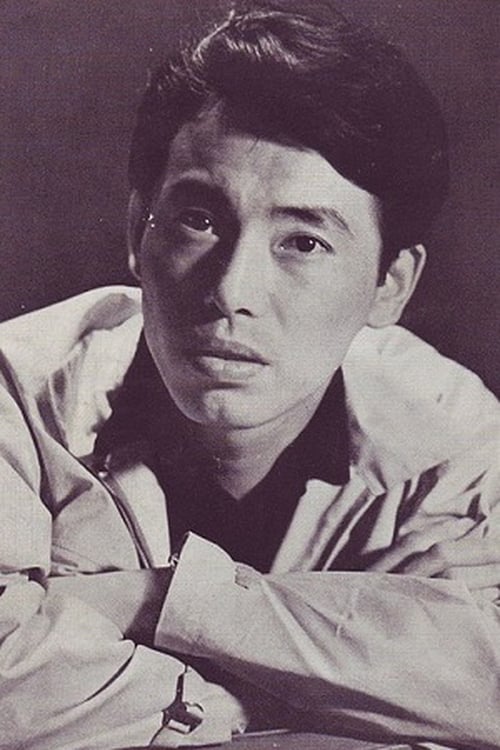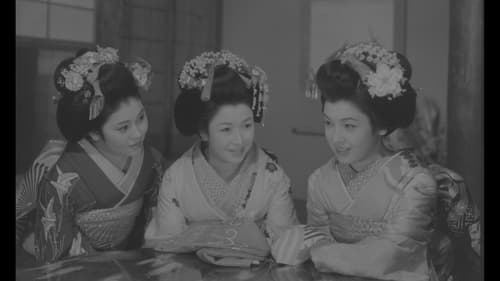
Self
Documentary made by Toho for the Masterworks reissue of all of its Kurosawa films. This one focuses on "Stray Dog" (1949).

Toshihiko Kurahashi
A wealthy Japanese sugar factory manager in Hawaii finds his wife sinking into depression and madness.

Father
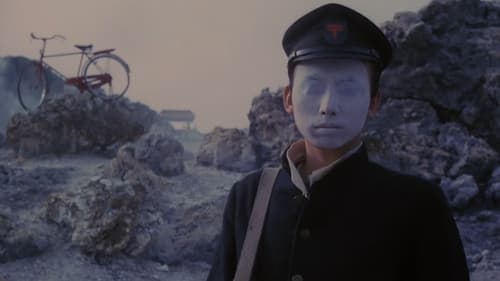
Film Critic
A young boys' coming of age tale set in a strange, carnivalesque village becomes the recreation of a memory that the director has twenty years later.
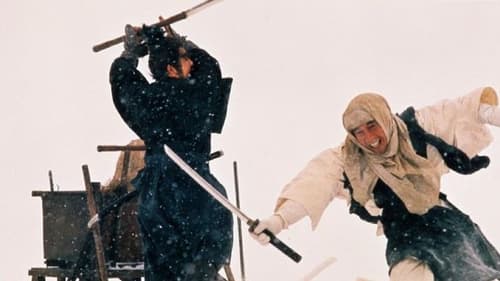
Tsuchigumo Hyoei
No sexto e último filme da Série Lobo Solitário e Filhote, vemos a batalha final entre Ogami Itto e o clã Yagyu.

Director Nose
In this intricately layered Japanese film, the nature of actresses and what they gain from acting is explored. The lives of three actresses are laid bare, and scenes from their lives are woven in and out of interviews with each of them. Each of them has experienced a traumatic event which contributes to their particular enjoyment of becoming someone else in dramatic roles.

Second delivery in the "Yakuza Hijoshi" series. The protagonist, played by Ando Noboru, is torn between the organization and his old friends.

A film about the construction of the Kasumigaseki Building, the first high-rise building in Japan.
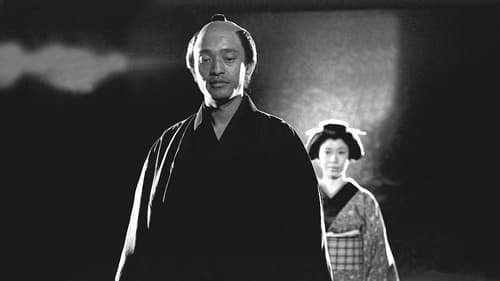
Writer Jippensha Ikku hears Tsutaya Juzaburo, a wholesaler of picture books, mutter on his deathbed, "Where has Sharaku gone?" He begins to figure out the true identity of Sharaku, who disappeared after about 150 portraits of actors he created came out.
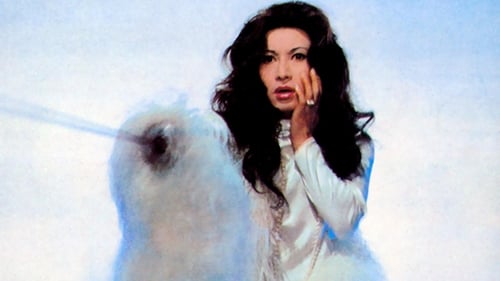
Kogoro Akechi / Matsukichi
A detective tries to outwit a jewel thief who has kidnapped the daughter of a jeweler to get to an exquisite diamond.

Goro Izawa
A gangster named Sagara killed a broker at the request of a friend named Oba, was arrested and spent eight years in prison. Now released, he wants to find out who squealed on him.

Kazuo Imai
In an isolated mountain resort, a woman gets involved in a love triangle between herself, her volatile lover and her ex-boyfriend, for whom she had platonic feelings.
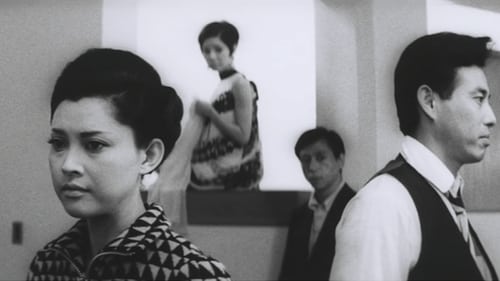
Shingo, Ibuki
Shingo and Ritsuko have a baby: Takashi. They happen to be a happy couple, but soon Ritsuko wants to know who is the true father of Takashi, born by artificial insemination.
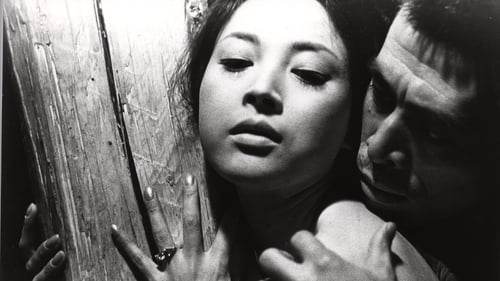
Mitsuhuru
As a young woman, Oriko condemned her widowed mother for openly pursuing relationships with younger men. After her mother passes away, she finds herself in an unhappy, loveless marriage and begins to understand her mother’s actions.

Yagyu Genzaburo
Loyal samurai Samanosuke is attacked, mutilated, and left for dead while carrying out a mission for his clan. He recovers but has lost an eye and an arm. Taking a new identity as Tange Sazen, he searches for a stolen urn which has hidden significance to his clan. But Tange Sazen has his own reasons for seeking the urn.

Inspector Enya
Provincial 14th century governor Moronao, attracted to the wife of a court magistrate, tries to seduce her and when she rejects his advances plots to send her husband into battle.
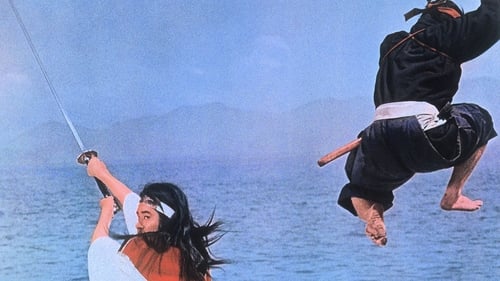
Hon'iden Matahachi
Neste terceiro filme da Trilogia do Samurai de Hiroshi Inagaki (baseado no livro "Musashi" de Eiji Yoshikawa), Musashi (Toshirô Mifune) é desafiado pelo confiante e habilidoso Sasaki Kojiro (Koji Tsuruta), com o qual duelará dentro de um ano. Neste período decide viver nos arredores de uma vila cultivando legumes, enquanto ainda é perseguido por Otsu (Kaoru Yachigusa) e Akemi (Mariko Okada), ambas apaixonadas por ele. Conforme a data do duelo se aproxima, Musashi é forçado a tomar uma decisão que concilie ou não seus sentimentos por Otsu e sua paixão pelo caminho do guerreiro, ao mesmo tempo que se prepara para o maior desafio de sua vida.

Shimamura
This movie is based on an immortal literary work "The Snow Country," a story about a life of geisha Komako who lives in a region with heavy snowfalls.

A headstrong young man seeks to join the Shinsengumi, but while his determination impresses his superiors, questions begin to arise as to his true identity and intentions.

Saitô
Yoshie Nogami, a factory worker by day, moonlights as a hostess at a bar. One of the regulars, Eiji Kitami, invites her out on a date. Still only 19, she goes along out of curiosity and ends up spending the night at a hotel where she gives herself to him. They begin a passionate love affair and move in together, after which Yoshie begins skipping work at the factory and rarely returns to her family home. Before long, Eiji’s demeanor changes and he begins to constantly ask her for money. Despite claiming to be a businessman, he is actually a local thug, and his inability to pay his dues to his gang leads him to force Yoshie into prostitution.
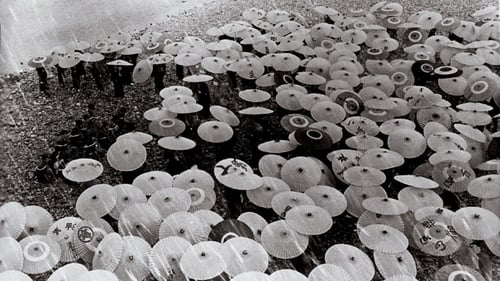
Tadasaburo Sasaki
Assassination begins with the events of 1853 when "four black ships" anchored at Edo Bay, sparking civil unrest and the major political manoeuvring that saw the end of the Tokugawa Shogunate. At a time when assassination had become a disturbing political tool, Shinoda's film follows Hachiro Kiyokawa, an ambitious, masterless samurai whose allegiances drift dangerously between the Shogunate and the Emperor.

Hon'iden Matahachi
Neste segundo filme da Trilogia do Samurai de Hiroshi Inagaki (baseado na obra literária de Eiji Yoshikawa) Miyamoto Musashi parte em busca de seu aprimoramento como guerreiro, mas acaba encontrando dificuldades muito maiores do que o mero cruzar de espadas.
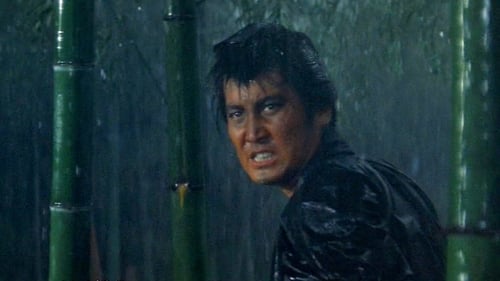
Morisuke of Hakoda
A young yakuza, Yatappe, wanders around the country in search of his long-lost little sister, Oito. While traveling, he rescues a young girl, Osayo, whose father entrusts her to him with his dying wish. To honor his promise to Osayo's deceased father, Yatappe brings her to safety, and from a distance keeps a watchful eye on her well being.

Hon'iden Matahachi
As tentativas de Musashi para arranjar um duelo com o renomado mestre Yagyu Sekishusai o coloca numa situação ruim diante dos alunos do mestre, o que o leva ao desenvolvimento de sua famosa técnica de duas espadas. Enquanto isso, o homem que se tornará seu maior rival, Sasaki Kojiro, faz uma aparição.

Tomokichi
Ryutaro Otomo as the Edo magistrate Umon Kondo is out to solve a crime that centers around the murder of a jail guard & the escape of a criminal who is later himself killed. His dying words in Umon's arms were, "I didn't kill the guard." The murdered criminal had been a safe-cracker & only his girlfriend knows where he hid a fortune. She is kidnapped, so the plot gets thicker & thicker.
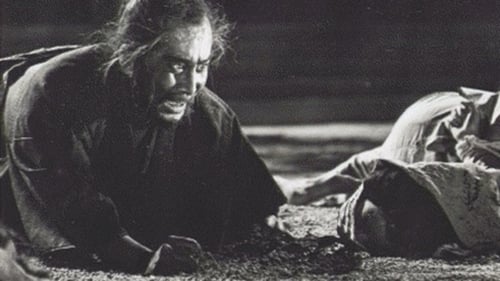
Hirotaro Iguchi
After a salary-man's fiancée attempts suicide, he recounts his gruesome family history which saw generations of his ancestors suffer and sacrifice themselves for the sake of their cruel lords.
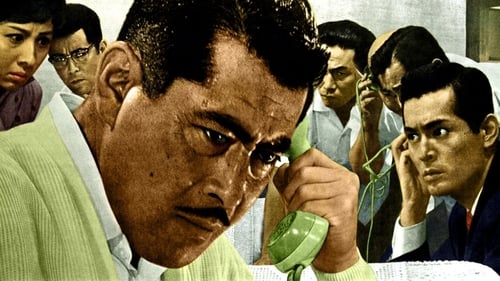
Detective Arai
Um executivo de uma empresa de calçados torna-se vítima de extorsão quando o filho de seu motorista é sequestrado e pedem resgate.
O executivo Gondo (Toshirô Mifune) hipoteca tudo o que tem na tentativa de assumir a Companhia Nacional de Sapatos, para manter a empresa fora das mãos dos outros executivos incompetentes e gananciosos. Contudo, o mesmo dinheiro que ele arrecada pode pagar o resgate que possivelmente irá salvara vida de uma criança, levando o executivo a tomar decisões extremas e elaborar procedimentos policiais. A resolução desse dilema - a perda certa da empresa vs a perda provável da criança - cria um drama distinto, e um elaborado procedimento de polícia cria um segundo. (e 12 - Estimado 12 Anos)

Hon'iden Matahachi
Depois de três anos de estudo, Takezo transformou-se em um samurai bem-educado, e tomou um novo nome - Miyamoto Musashi. Apesar de seu amor por Otsu, ele sai para continuar a seu treinamento, desafiando os espadachins da Yoshioka Dojo e lanceiros do templo Hozo'in.

Shoji Ohtsu
A story about the lives of four sisters and their manipulative mother who must come to terms with each of their decisions in life.

Based on the novel of the same name by Seichō Matsumoto.

Yutaka Matsumoto
When two sisters fall in love with the same man, one must decide to look elsewhere.
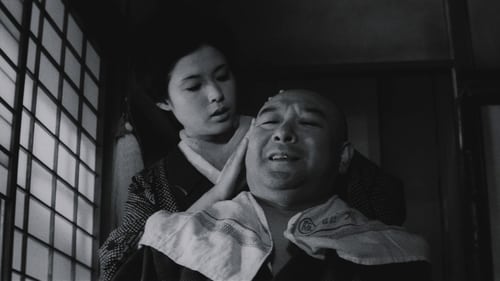
Atsumichi Uda
Satoko is a mistress by trade or fate: when her master, the silkscreen artist of the Kohoan Temple in Kyoto, dies, she is given to the temple's lascivious head priest Kikuchi. She is drawn to a melancholy young acolyte, Jinen, who has observed the profligacy of his cruel master and Satoko's utter dependence on the man. Jinen is both fascinated and disturbed by Satoko's interest in him; he is similarly caught between loathing of Kikuchi and of the dark circumstances of his birth and his own moral weakness. The story unfolds in a dreamlike manner—a flashback inspired by a now-infamous image on a silkscreen in the souvenir shop at the so-called Temple of the Wild Geese.

Two obaachans become fast friends listening to music in front of a record store. They both boast about their loving sons but in reality, one had just escaped a retirement home and the other was looking for an escape from her son and daughter-in-law. With nowhere to go, the two wander around, befriending a cosmetics salesman and a kind waitress who give them beer. This biting social satire starring two memorable grandmothers, scripted by Yôko Mizuki, picked up on Japan’s aging population problem far ahead of its time.

Kutsuda

Japanese comedy film.
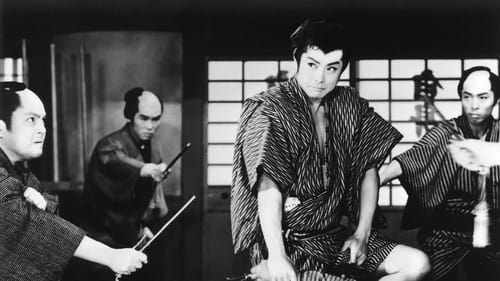
Young Lord Taihei goes to Edo to find the lost family treasure, a plover incense burner, under the disguise of a ronin.

Hon'iden Matahachi
Depois de Takezo (Musashi) e seu amigo Matahachi acabarem no lado perdedor da batalha de Sekigahara, Matahachi decide começar uma nova vida com uma mulher mais velha. Quando Takezo retorna para casa para contar à noiva de Matahachi, Otsu, e mãe, Obaba, o que aconteceu, ele acaba sendo caçado como um fugitivo - e pendurado no topo de uma árvore por um enigmático monge.

The last Japanese soldier in 16 years who survived
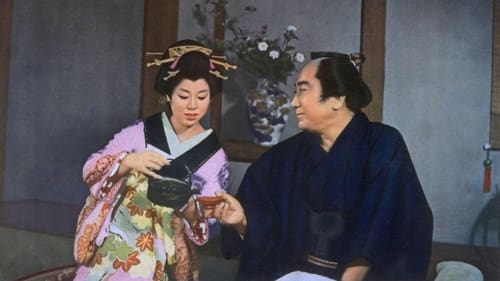
A successful textile industrialist from the provinces, who is beloved by his employees for his kindness, cannot find a wife because of a disfiguring birthmark on his face. Even the courtesans in Yoshiwara refuse to entertain him, until an indentured peasant prostitute, Tamarazu, takes the unsavoury assignment and treats him with brash tenderness.

Woman private eye Emiko goes undercover to reveal the truth of a murder case.

Yoshihiko Takayama
Based on the Nobu Koito story
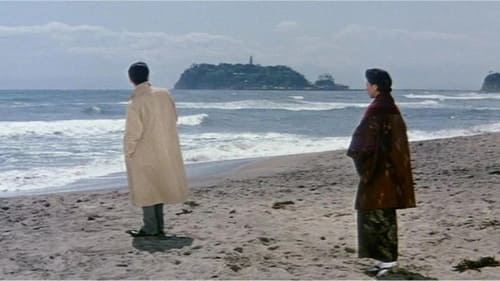
Okawa
A war widow with a young boy manages a farm with her bossy mother-in-law. When a reporter comes to interview her, the two begin an affair. He turns out to be married and won't leave his wife. Her older brother tries to marry off his children and hang on to/ extend his farm through an advantageous marriage in the face of threatened land confiscation and the desire of his children to get comfortable urban jobs instead of the backbreaking work in the paddy fields under parental control.

Japanese drama film.

Ryokichi Urushiyama, the husband
Anzukko (Little Peach) is the daughter of a successful writer. She turns down each one of her suitors, until she marries a beginning writer named Ryokichi. Their life quickly sinks into despair.
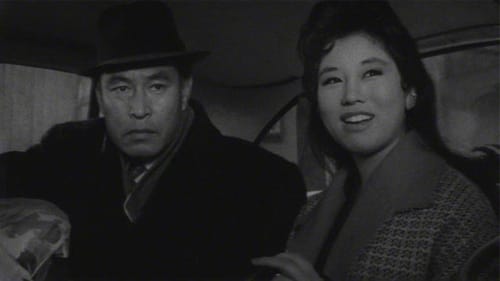
Iwase Shichiro
A movie adaptation of Funayama Kaoru's novel of the same name, which depicts the story of a modern youth who is attracted to the evil path. Saburi Shin, a well-known actor who also demonstrated his skill as a director in a bold social work, embodies a person with a complicated dilemma in a shadowy manner, and is a dramatic work that plays a part in the lead role.

Segawa Hospital doctor
Junai Monogatari AKA Story of Pure Love is about two poor youths, Mitsuko and Kando, rebelling against society in various ways, who are desperately trying to be together despite tortuous circumstances. The film depicts their lives as thieves, menial laborers who can get little pay, society outcasts, and of course, lovers. Junai Monogatari depicts, mostly, their struggles within the Japanese reformatory system and Mitsuko's worsening sickness.
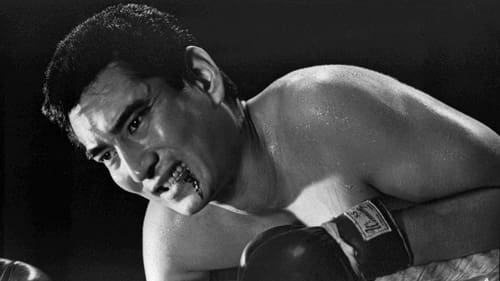
Hayata and his best friend Ushijima came to Tokyo to become champions. Hayata repeatedly sought to join Tamura's boxing club, but Tamura fell in love with Ushijima's punch. Then Hayata decides to become Ushijima's manager and make good money on his friend's talent. Ushijima himself is a peaceful, kind guy who doesn't really like boxing, but under the wise guidance of Hayata, he starts to defeat one opponent after another...

Kazuhiko Uematsu
Melodrama about a young factory girl who "chooses riches over chastity".

A touching story depicting the harsh lives of farmers in Kasumigaura. An attempt to start a fishery business to revive an ailing farming community creates friction amongst the proud residents.
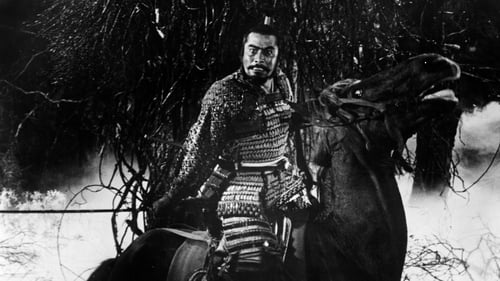
Phantom samurai
Japão, século XVI. As guerras civis sacodem o país. Dois valentes samurais, os generais Washizu Taketori (Toshirō Mifune) e Miki (Minoru Chiaki), regressam aos seus domínios depois de uma batalha vitoriosa. No caminho, uma misteriosa senhora profetizao futuro de Washizu: o guerreiro se converterá no Senhor do Castelo do Norte. A partir deste fato Washizu, auxiliado por sua esposa Asaji Isuzu Yamada, se vê imerso numa trágica e sangrenta luta pelo poder.
Trono Manchado de Sangue (蜘蛛巣城, Kumonosu-jō?, literalmente "Castelo Teia de Aranha") é um filme japonês de 1957 dirigido por Akira Kurosawa, que transpôs a obra Macbeth de William Shakespeare para o Período Sengoku japonês (séc. XV - XVI).

Japanese drama.

Takeo Fujisaki
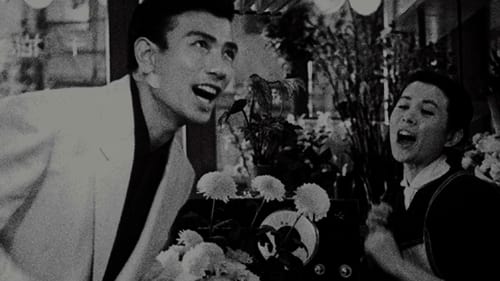
Masaki Kobayashi directs this romantic drama concerning a family of florists.

Shizuka, Eiichiro, and Mineko, their father and son, live modestly in a certain suburb, leading a dreary but happy life. Eiichiro is troubled by Shizuka's desire to live together in familiar Tokyo. Mineko is the exact opposite of Eiichiro. A literary masterpiece depicting the fateful sorrow and humor of a mother and child

Ensign Tamai

Koroku Tate
An ethical, young tax collector new to his area encounters increasingly absurd individuals and groups coping with their post-war woes.
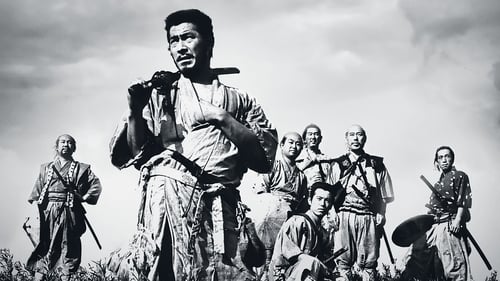
Katsushiro Okamoto
No século XVI, durante a era Sengoku, quando os poderosos samurais de outrora estavam com os dias contados, pois eram agora desprezados pelos seus aristocráticos senhores. Kambei (Takashi Shimura), um guerreiro veterano sem dinheiro, chega em uma aldeia indefesa que foi saqueada repetidamente por ladrões assassinos. Os moradores do vilarejo pedem sua ajuda, fazendo com que Kambei recrute seis outros ronins (samurais sem mestre), que concordam em ensinar os habitantes como devem se defender em troca de comida. Os aldeões dão boas-vindas aos guerreiros e algumas relações começam. Katsushiro (Ko Kimura) se apaixona por uma das mulheres locais, embora os outros ronins mantenham distância dos camponeses. O último dos guerreiros que chega é Kikuchio (Toshiro Mifune), que finge estar qualificado mas na realidade é o filho de um camponês que almeja aceitação.

Based on Philippines war experiences. Military doctor Leutenant Hanada deserts with a local girl. The officer in command orders Lieutenant Uji to shoot Hanada. Uji takes a sharpshooter called Takagi and tracks him. At first Uji cannot forgive Hanada but as Uji is isolated from the main force he too starts to think of desertion.

1950s Japanese drama.
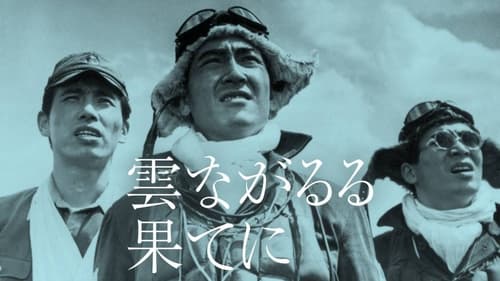
A movie that depicts the tragic fate of many Yokaren flight-academy pilots.

A math teacher loses his job while falling in love with a local girl.
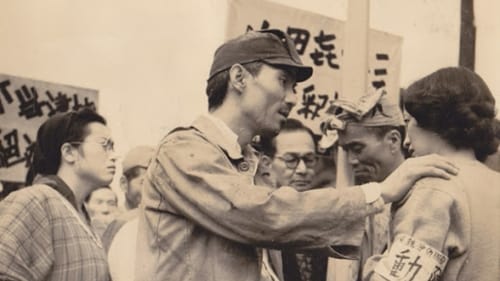
Onna Hitori Daichi wo Yuku (A Lonely Woman in a Lonely Land, Kinuta Production, 1953) was the second feature film directed by Kamei Fumio, who is known as a master of documentary films, and followed his “Haha Nareba Onna Nareba(Become a Mother, Become a Woman)” (1952).

Kitani
Just before the end of the war, Japanese soldier Kitani is released from prison, having served his term for theft. Told in flashback, viewers learn about Kitani's past and reasons behind his prison sentence.
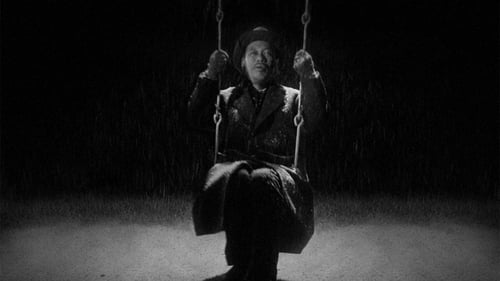
Intern
Burocrata de longa data, que não liga para nada que não o interessa, descobre que está com câncer. Decide, então, construir um playground em seu bairro, tentando descobrir um sentido para sua vida.

A story of a passionate teacher and his great effort for the children in a poor village.

Nozu
The troubled relationship between a writer and his ballet teacher wife, who has for years loved another man, finally leads to the breakup of the family.
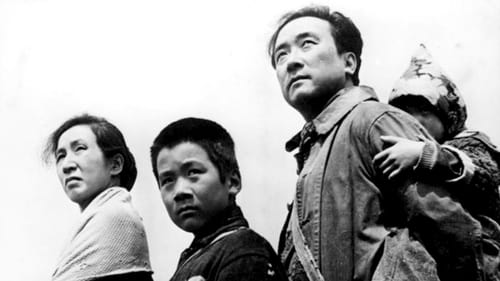
Mizuno
About the struggles of day labourers to achieve dignity and a standard of living above the starvation level. Utilising the Zenshinza theatrical troupe.

Nomine
A Hibari Misora musical about an impoverished girl and her brother in Postwar Japan.

Wataru Naohiko who has the prosecutor general as his father became a young composer and its symphony "saint" invoked the world echoed. But his disciple Uchiyama and his best friend prosecutor Daisuke Toki accused his music as a sesame of pause-only technique, not a truly heart-hungry art.

The Angry Street includes a great deal of location shooting in the rebuilt city, including downtown streets, residential neighborhoods, the campus of the University of Tokyo, and the high life of jazzy dance halls. Sudo (Hara Yasumi) and Mori (Uno Jukichi) are two university students who make money by picking up rich girls in dance clubs and conning them into giving them cash. Mori is the brains of the operation, and Sudo is the suave dancer who picks up the girls. Over the course of the film, Sudo becomes involved with three different girls and is drawn into the gangster milieu, which he seems unable to resist even though he is responsible for his mother, grandmother, and sister, Masako (Wakayama Setsuko). In this world of bad boys and girls, Masako is the pillar of strength and moral virtue who finally enables Mori to straighten out.
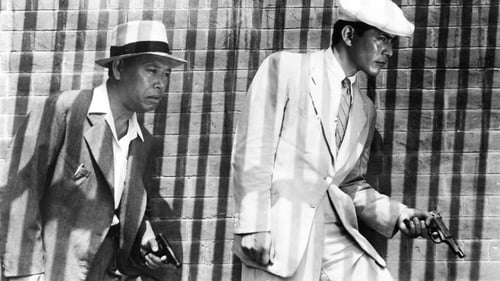
Yusa
Murukami, um jovem investigador de homicídios, é roubado em um ônibus e perde sua pistola. Ele começa uma busca insana atrás de sua preciosa arma, sem sucesso, até receber a ajuda de um sábio e mais experiente detetive chamado Sato. Clássico noir do mestre Akira Kurosawa, que redefiniu o padrão de filmes policiais japoneses. (e 12 - Estimado 12 Anos)
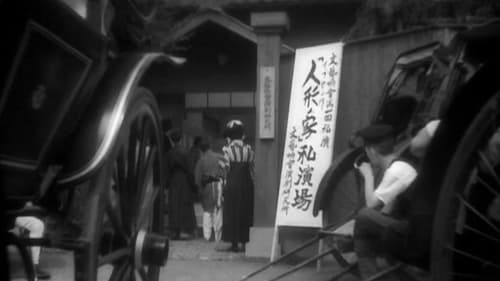
The stage director Shimamura, who is bringing western theatre to Japan, falls in love with the outspoken actress Sumako Matsui, and leaves his family to be with her, while trying to keep his Art Theatre solvent.
